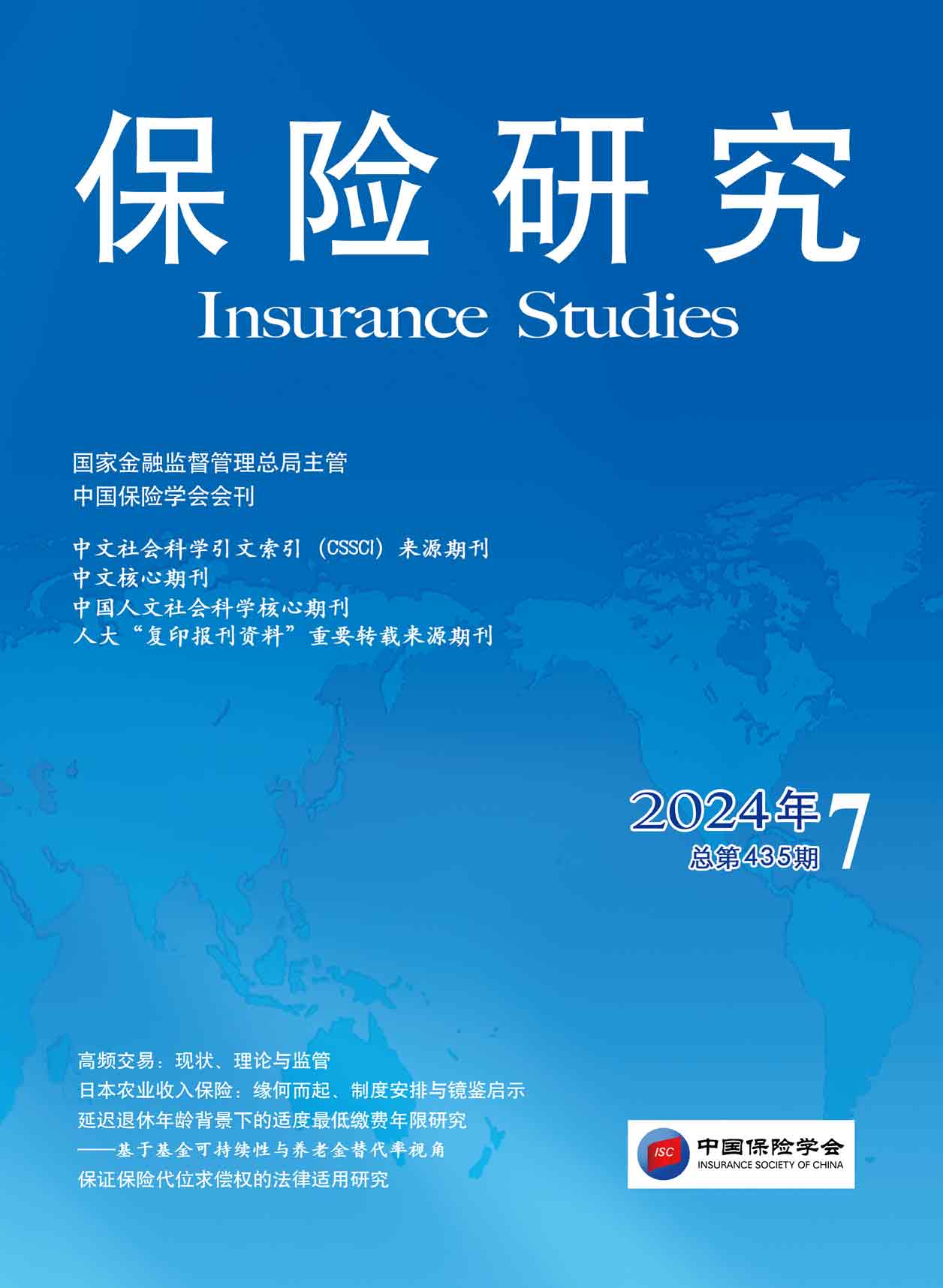
《保险研究》20240704-《基于机器学习的心脑血管疾病带病体个人自付医疗费用和保险赔付预测》(王倩、邹全)
[中图分类号]F840.684[文献标识码]A[文章编号]1004-3306(2024)07-0051-13 DOI:10.13497/j.cnki.is.2024.07.004
资源价格:30积分
- 内容介绍
[摘 要]心脑血管疾病是老龄人群患病率、死亡率最高的疾病之一,带来了沉重的经济与社会负担。随着我国人口老龄化程度加剧,开发针对带病体的商业健康保险产品显得尤为重要。本文基于详实的历史住院数据,采用机器学习方法对心脑血管疾病人群的住院费用进行预测,对不同机器学习方法进行预测比较后,采用表现最佳的LightGBM对心脑血管疾病群体进行个人自付费用的测算,分析了性别、年龄、省份、社保类型、婚姻状况、合并症和地区经济条件对个人自付费用的影响,并在此基础上预测了保险理赔情况,发现“年龄”是影响理赔的主要因素。本研究结果可为保险公司设计创新型商业健康保险产品提供借鉴。
[关键词]心脑血管疾病;机器学习;住院费用预测;赔付预测;商业健康保险
[作者简介]王倩,北京工商大学经济学院风险管理与保险学系副教授;邹全,北京工商大学经济学院风险管理与保险学系硕士研究生。
Machine Learning-based Prediction of Individual Self-paid Medical Expenses and Insurance Compensations for Patients with Cardiovascular and Cerebrovascular Diseases
WANG Qian,ZOU Quan
Abstract:The number of patients with cardiovascular and cerebrovascular disease in China has exceeded 330 million.These diseases pose a grave health risk to the elderly,representing one of the highest morbidity and mortality rates amongst the aging population.As the population aging intensifies in China,the development of related commercial health insurance products becomes increasingly pertinent.This paper,drawing on comprehensive historical hospitalization data,employs machine learning techniques to forecast hospitalization expenses for individuals with cardiovascular and cerebrovascular conditions.It also compares the predictive capabilities of various machine learning methodologies.After the comparison,the LightGBM,which demonstrates superior performance,is used to estimate out-of-pocket expenses for individuals within this disease group.It also studies the impacts on personal out-of-pocket expenses by factors such as gender,age,province,type of social insurance,marital status,comorbidities,and regional economic conditions.It then further predicts on insurance claims,identifying ′age′ as a primary factor affecting claims.Insurance companies can leverage on the results of this research to design innovative commercial health insurance products.
Key words:cardio-cerebral vascular diseases;machine learning;prediction of hospitalization expenses;claim prediction;commercial health insurance
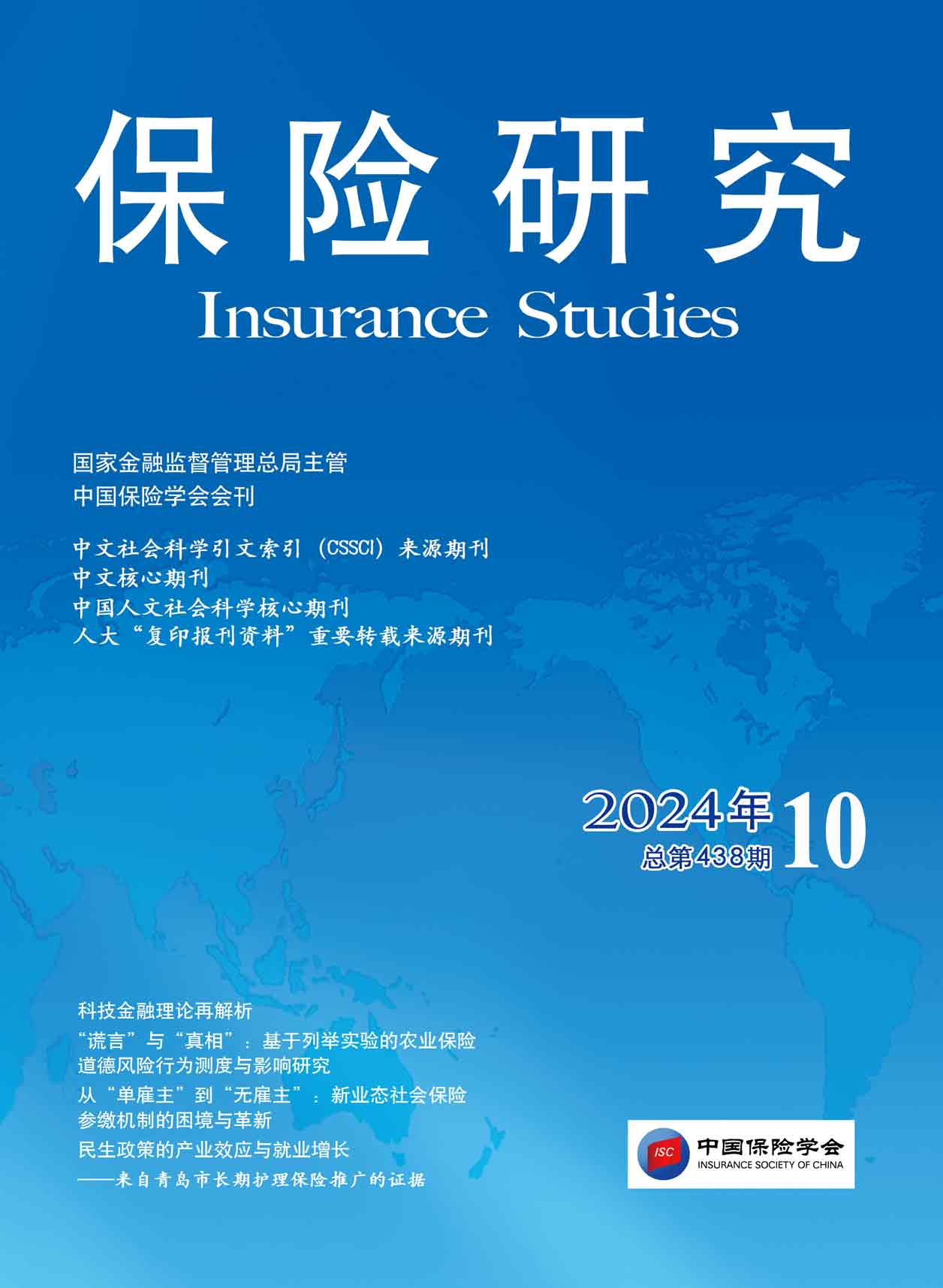
《保险研究》20241001-《科技金融理论再解析》(张明喜)

《保险研究》20241002-《重大慢性病与中国老年家庭财产消耗——兼论保险的调节效应》(刘靖、张晓慧、毛学峰)
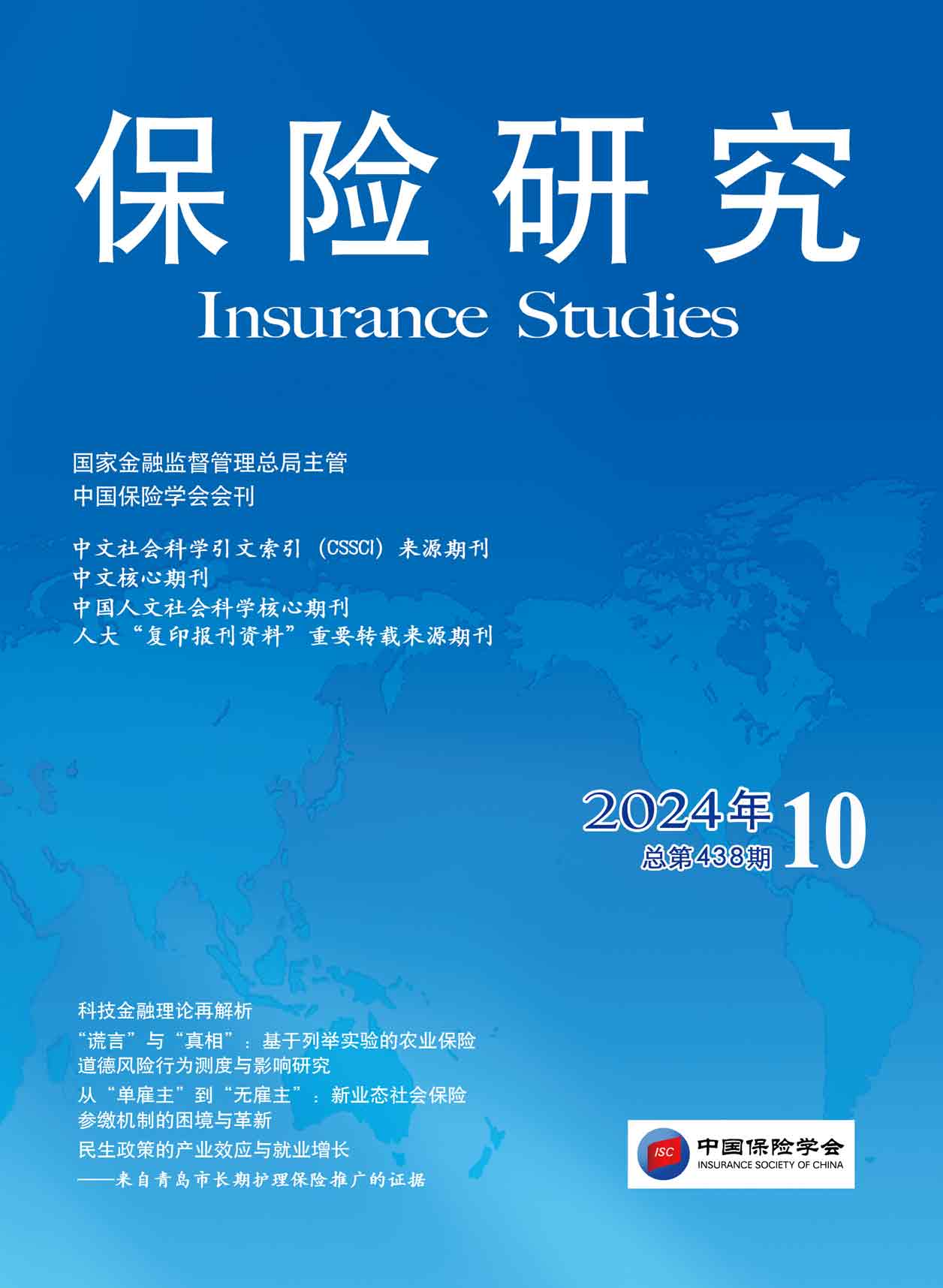
《保险研究》20241003-《监管问询函是否影响保险定价决策?——基于董事高管责任保险合约的经验证据》(徐一泽、李延胤、许荣)
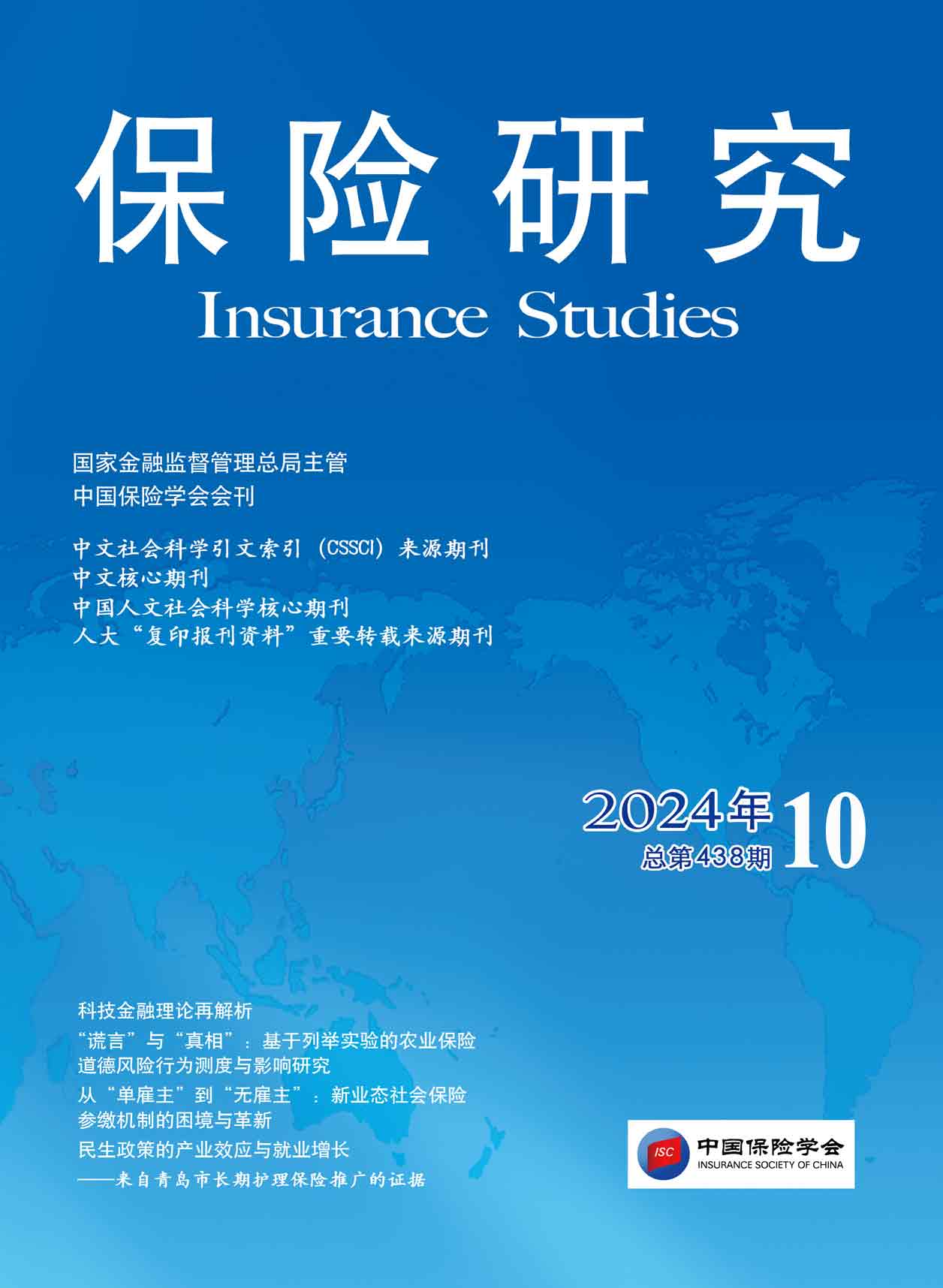
《保险研究》20241004-《增额终身寿险内嵌退保期权风险研究》(周书正、刘迪)

《保险研究》20241005-《基于两阶段分位数随机森林的非完全支付赔款预测》(李政宵、刘钰冰)
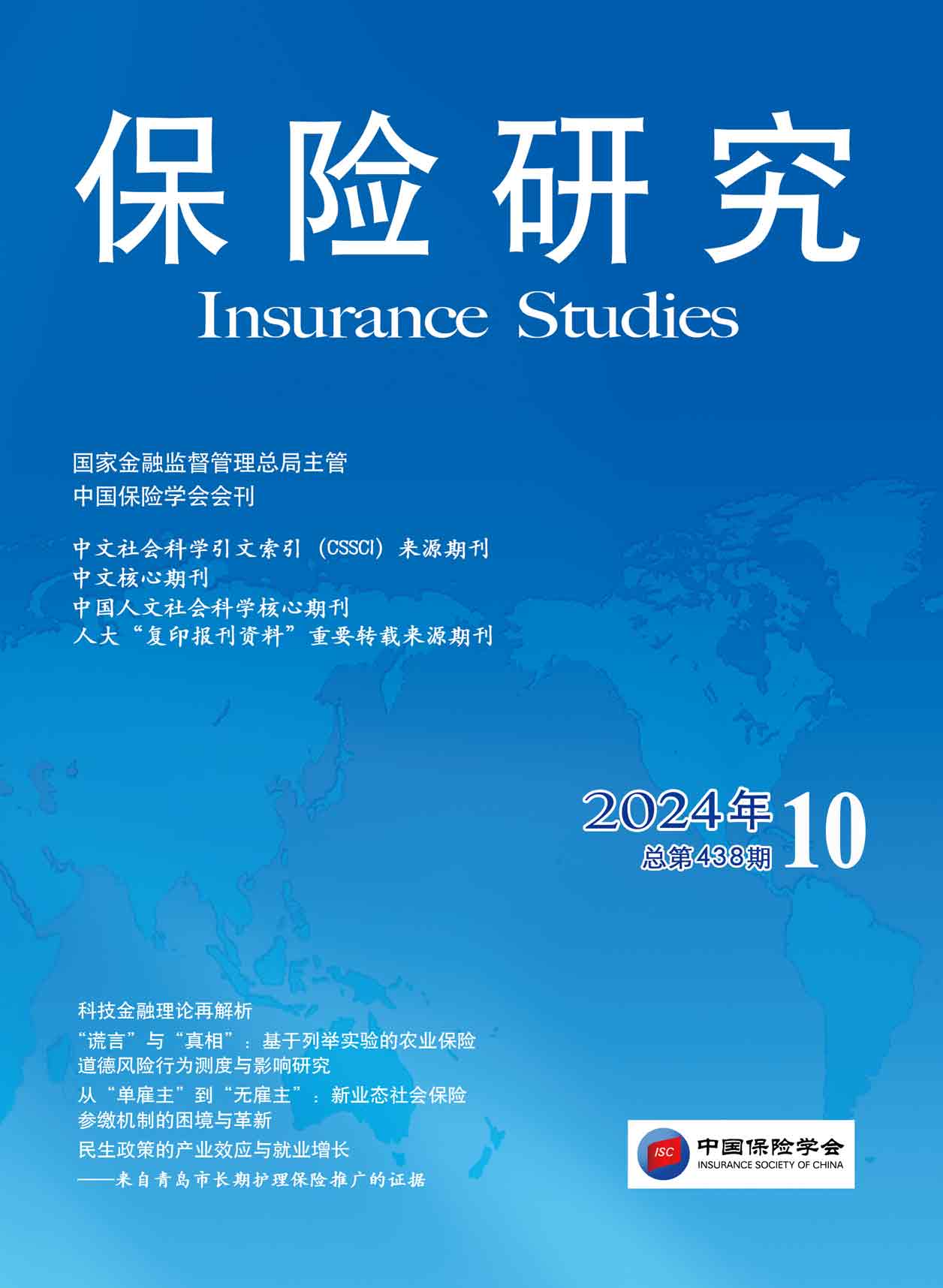
《保险研究》20241006-《“谎言”与“真相”:基于列举实验的农业保险道德风险行为测度与影响研究》(易福金、许晴、燕菲儿、胡鸣宇)
